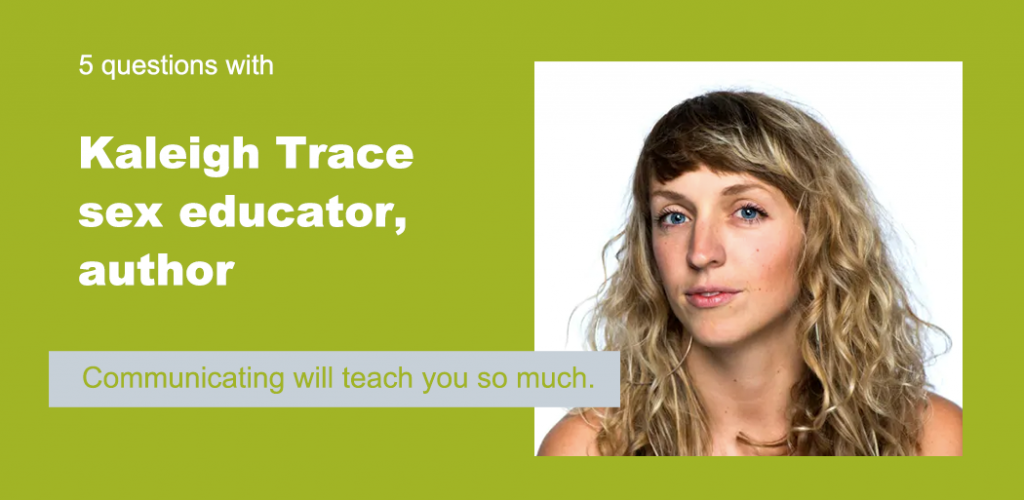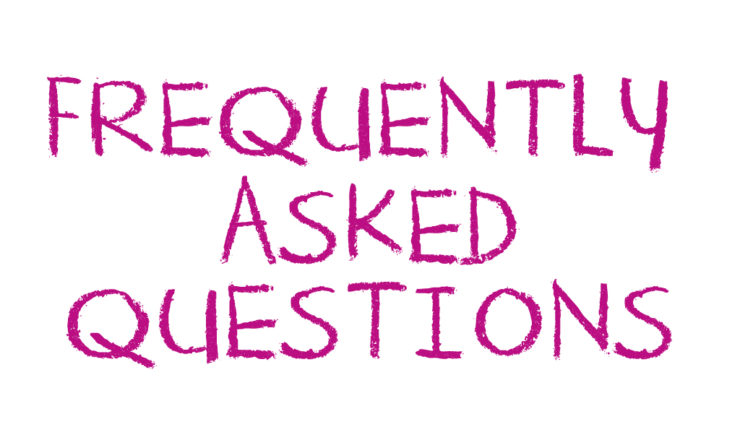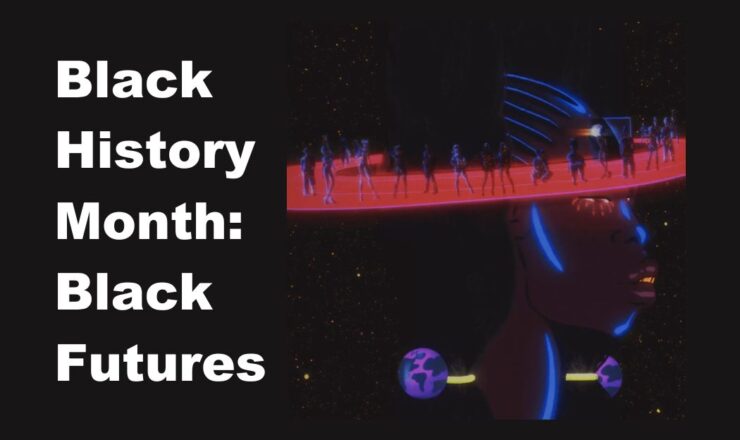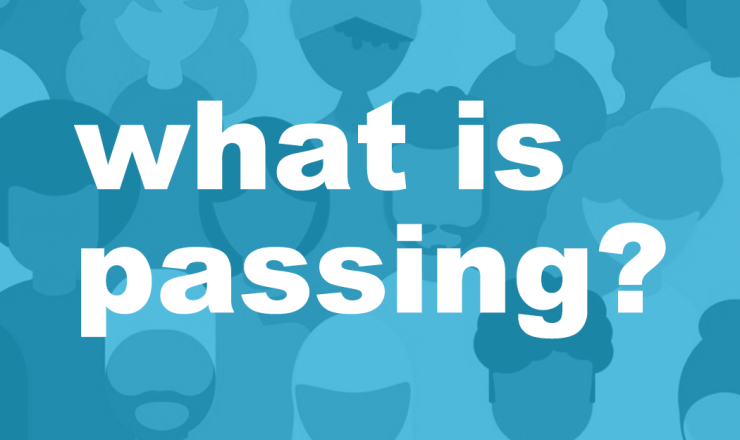

5 Questions is where Teen Health Source volunteers ask 5 questions to people about their unique perspectives on everything to do with sex and gender. In this installment we interview Kaleigh Trace. Kaleigh works in a sex shop, writes a sex blog (formerly thefuckingfacts.com , now kaleightrace.com) and recently published the book Hot, Wet and Shaking: How I Learned to Talk About Sex. As a disabled, queer, sex educator we are super curious about advice Kaleigh has on sex and healthy relationships.
Oh, good question! I don’t know if there is one specific question that I hear a lot, but I do often hear many variations of the same root question, which is people asking (in one way or another) if their body is “normal”. I think it’s very common for all sorts of people, regardless of age, gender, orientation, etc., to worry that there is something “wrong” with their body that will make them less sexually desirable or competent. And generally the answer, of course, is no! There is nothing “wrong” with any one individual. It’s just that all bodies are different, perform differently, look different from one another, and want a wide array of things. The problem lies in the narrative of homogeneity that we are fed when it comes to sex and bodies, not in any individual!
To be honest, it was a bit of a fluke. As a disabled person, I had a lot of personal investment in debunking some of the myths surrounding sex and a lot of drive to talk about sex openly. This investment and drive landed me a job at Venus Envy, Halifax’s local sex shop, and from there things fell into my lap. Having an abortion inspired me to write and led me to blogging, and a local publishing house soon offered me a book deal to put my blog onto paper. It was luck in a lot of ways, and I am really grateful to live in such a vibrant, supportive community.
If I have any advice for folks looking to follow a similar career path in sex education, it would be to listen well. You’re never going to know it all, and understanding human sexuality is so much about listening to other people’s experiences. So listen. And practice kindness! Sex is something that involves so much ego and vulnerability, so if you’re in a position to be teaching others about it, I think it’s really important to bring warmth and empathy to that role.
This is a great question! And a tough one! It’s kind of like asking how to flirt, and lord knows, I have a lot to learn there.
I guess I have two answers, depending on the situation. If the person you want to have sex with is a new friend, a stranger, an acquaintance, ask a lot of questions. My “flirting with new cuties” strategy is to just get them talking. Generally speaking, humans like talking about themselves and so often people have a lot to say to questions like, “I love this song! Have you heard this whole album?; What did you think of the new star wars movie?; this is my favourite pizza flavor! What’s yours?” Plus, then if they give a wacky answer (“I didn’t like the new Star Wars because I don’t think women should play leading roles”, for example) you might find out early in that actually, they aren’t worth having sex with.
If the person you want to have sex with is a former lover, a close friend, someone you know intimately, I think honesty may be the right strategy here. Being truthful and forthright about your intentions can save a lot of time and potential heartache. Honesty is hard because it means a lot of vulnerability, but I’m all about clarity. I would rather express my desires and be turned down, then have a crush never understand the depths of how I felt about them!
Yes! Talking about sex can certainly feel awkward at first, but the more you talk about sex the easier it gets, and the easier it gets to talk the better sex can feel. In short – it’s really hard to know what is going to get someone off, what kind of touching someone likes, what kind of activities someone wants to do, unless you talk about it. Communicating will teach you so much.
Oh my, there are so many. “People with disabilities can’t have sex, don’t want to have sex anyway, aren’t sexy.” It can be a real bummer. It’s hard to live in a world that systematically tell you that your body, your life, is less valuable than others. We are fed that message through inaccessible infrastructure, by the way strangers stare at us, by a total lack of representation of disabled people in the media. It can be hard sometimes to not internalize those messages. But luckily, there are a lot of awesome (and sexy!) disabled role models that I turn to when I start to feel down. For anyone looking, I would check out Loree Erikson, Andrew Gurza, Eli Clare, Lyric Seal, Mia Mingus, and Mia Gimp (to name only a few).
That’s tough! I guess I am going to give you an answer promoting criminality and say – order online! But I suppose for that you might need a credit card? If it’s hard to get sex toys, and the laws do make it difficult, I encourage you to learn your body in alternative way. Hands are great, showerheads are awesome, and I’ve even known folks who have found fun in sitting on dryers. Be creative! And there is a lot to be learned about bodies and sex through books, all of which you can legally purchase at any time.
If you have questions about this topic, feel free to contact one of our peer educators. [Link]
Last Updated: August 2021

Teen Health Source vols came up with some strategies and things to think about if you’re having a tough time coming out to your family.

Learn more about Black Futures with Teen Health Source and TEACH! Listen to Paula’s interview about the future of Blackness and some highlights of work focusing on imagining new Black realities!

“Passing” generally means being perceived by people, and mainstream society as cisgender and/or heterosexual. Passing is not inherently good or bad, but it is a complicated topic! Check this post out to learn more!